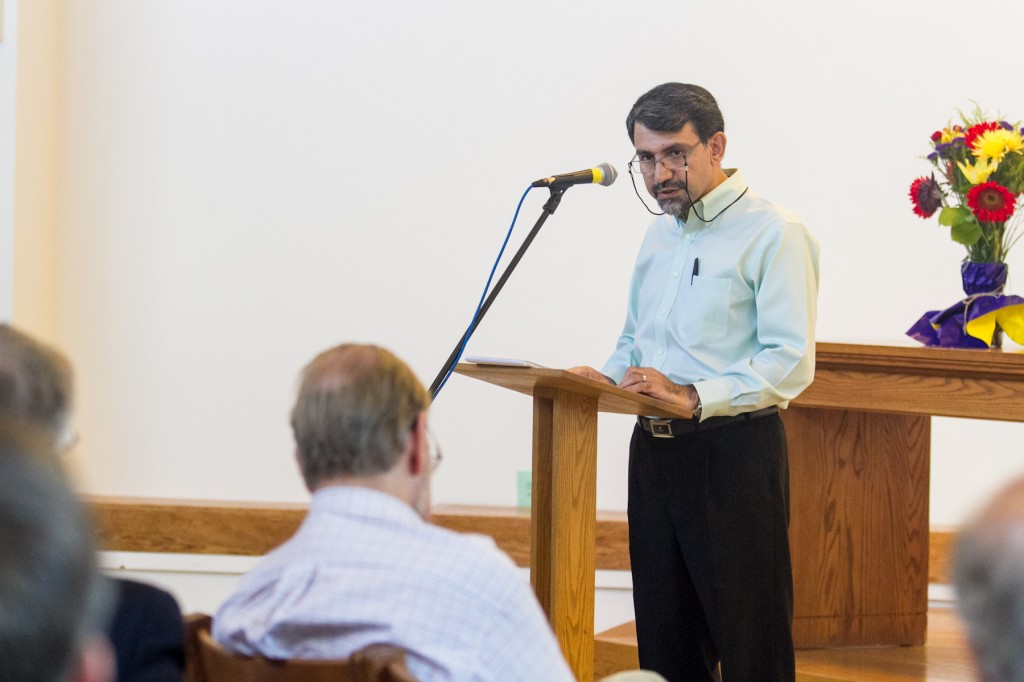A Muslim scholar from Iran is teaching at Eastern Mennonite University this academic year as part of a new three-year visiting scholar series.
Amir Akrami, from the Iranian Institute of Philosophy in Tehran, is teaching two courses during the spring semester 2013 – “Introduction to Islam” and “Issues in Islam.” During the fall semester he taught a non-credit mini-course on Islam that attracted over 20 regular students. During the year he is also invited frequently to guest-lecture in other classes, and he spoke at EMU’s first Interfaith Forum of the 2012-13 school year.
The visiting scholar series, initiated by EMU’s three-year-old Center for Interfaith Engagement, is funded by a $355,000 grant from the Henry Luce Foundation. The center focuses on the three monotheistic religions that started in the Middle East and which honor Abraham. The three are Judaism, Christianity and Islam.
“We decided to start the visiting scholar program with a Muslim professor,” said Ed Martin, PhD, director of the Center for Interfaith Engagement, “especially in this time of an expanding Muslim population in the U.S. and a great deal of Islamophobia.
“It’s important that our [majority Christian] students learn about other faiths, such as Islam, and be comfortable relating to people of other faiths, particularly Muslims,” he added.
EMU selected Akrami from an application pool of 16 Muslim scholars. He was a regular participant in the internationally respected Building Bridges Seminars in London, Bosnia, Washington, Singapore and Rome. The seminars are based at Georgetown University in Washington.
Akrami holds a master’s degree in religions and mysticism from Tehran University in Iran and a PhD in the philosophy of religion from McGill University in Montreal. He finished his doctoral thesis at the Iranian Institute of Philosophy. Adrami also was a visiting scholar at the University of Birmingham in England and taught at the Al-Mahdi Institute in Birmingham.
What are Americans’ most common questions about Islam? “After the 9/11 attacks, they wondered whether Islam is an inherently violent religion,” said Akram. “The answer is ‘no.’” Other questions have to do with the status of Jesus in Islam and – especially from Catholics – the place of Mary.
On the reason for misunderstanding, even hatred, between Christians, Jews and Muslims, Akrami observed: “People are afraid of the dark – what they don’t know. But when you shed light on the dark areas, often through education, attitudes change.”
Another way to reduce hostility, Akrami said, is for people in the three religions to simply get to know each other.
One of Akrami’s students during the fall semester, assistant professor Linda Gnagey, was impressed with the diversity of the class – EMU students and faculty, community members, those with and without personal experience with Muslims.
“Dr. Akrami differentiated between Islam the historical religion and Islam as a code of conduct,” she said. “This helped me to recognize the many beliefs, behaviors and attitudes that Christians and Muslims share.”
Akrami was joined in December by his wife, who is also a Muslim scholar. He has a 22-year-old daughter in Iran and an 18-year-old son in Canada.
